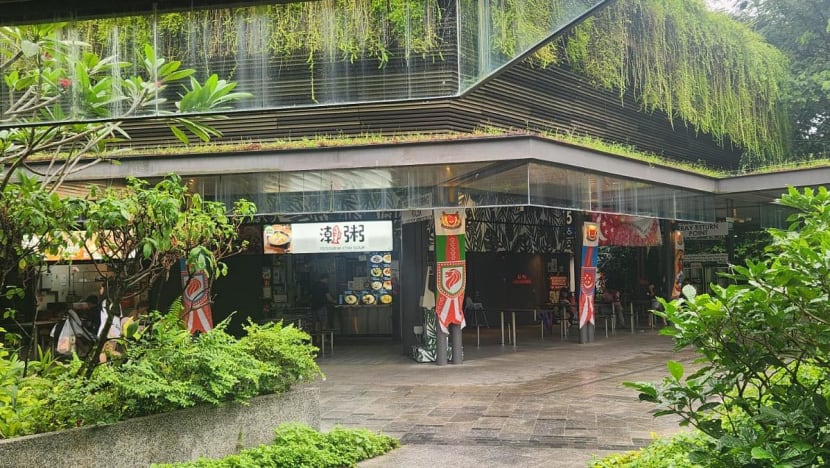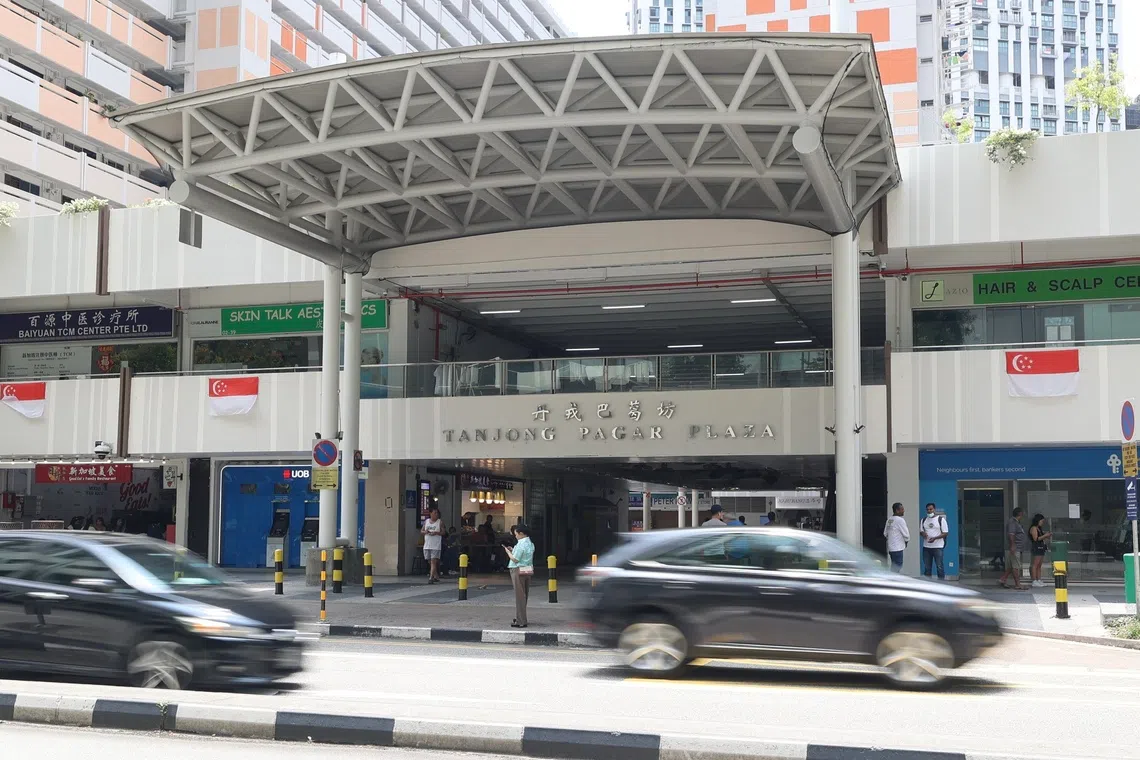- Joined
- Jul 25, 2008
- Messages
- 15,160
- Points
- 113
Bukit Canberra hawkers contractually bound to provide free meals under pay-it-forward scheme, lawyers say
Despite the operator's public stance that participation is voluntary, lawyers say contractual obligations may still apply.
Bukit Canberra Hawker Centre. (Photo: Facebook/Ong Ye Kung)
14 Aug 2025
SINGAPORE: Hawkers’ participation in a scheme to provide free meals at Bukit Canberra Hawker Centre is mandatory based on the language of their tenancy agreements, said lawyers consulted by CNA.
A 2024 version of the contract seen by CNA states that a stall tenant “shall participate” in the pay-it-forward programme “as implemented and/or directed by the company”, requiring them to set aside 100 meals at their own cost for the scheme.
Another clause requires the tenant to provide at least two menu items below S$3 and display them prominently. The tenant shall also offer a 10 per cent discount on their other menu items to CHAS Blue, Pioneer Generation and Merdeka Generation card holders, another clause read.
Managing partner of Lighthouse Law Adrian Wee said it does not appear from the wording of these clauses that the hawkers’ participation in the scheme is voluntary.
"The use of the word 'shall' suggests that the tenant is obliged to participate in the scheme and that this is one of the several obligations imposed on the tenant under the tenancy.
"The fact that the scheme has not yet started has no bearing on whether the tenant will eventually be obliged to participate if and when the scheme starts," he added.
Lawyer Chooi Jing Yen also agreed that the word "shall" means the hawkers legally have to participate in the scheme.
"Technically, if the hawkers fail to comply, that would be a breach of the contract," he said.
Bukit Canberra Hawker Centre is one of several social enterprise hawker centres in Singapore. In 2024, then-Senior Minister of State for Sustainability and the Environment Koh Poh Koon said that all social enterprise hawker centre operators must propose ways to ensure affordable food options are available as part of their tender proposals.
"So far operators have committed that all stalls in their centres will provide at least one value meal option. This is not an attempt to force hawkers to sell all of their dishes at low prices.
"Instead, the intent is for operators to work with hawkers to offer a range of food offerings at different price points," he had said at the time.
Value meals only account for about 5 to 20 per cent of meals sold in social enterprise hawker centres, he noted. "Hawkers are not expected to make a loss selling value meals."
The operator of Bukit Canberra Hawker Centre took to Facebook on Tuesday night to address the free meals programme. According to Canopy Hawkers Group, it received “overwhelming interest” during the stall application stage three years ago, and it was “not easy” to select tenants.
"Other than offering affordable and quality meals, we also incorporated into our selection criteria hawkers who shared our vision to pay it forward to the community, through the offering of free meals to the low income.
"As hawkers were selected on this basis, we incorporated Pay-it-Forward into the tenancy contract," the operator said in its post.
After the hawker centre opened, the operator discussed the programme with the stallholders further, and reduced the original arrangement of 30 meals per month to a total of 100 meals over the three-year tenancy period, the post read.
This revised arrangement was reflected in a contract variation around August 2023, said Canopy Hawkers Group.
In the Facebook post, it noted that the programme has not officially started and the preparatory work has not been done yet.
"So there is no obligation on the part of the hawkers, and no penalties to speak of.
"While hawkers have voluntarily agreed to participate at the point of selection, we also acknowledged the view that charity should not be contractual, and this is something to be reviewed again when the Pay-It-Forward programme is ready."
Member of Parliament for Sembawang GRC Ong Ye Kung had said on Monday that there are no penalties if hawkers "do not or are unable to provide the meals". The health minister also said the initiative had yet to start.
Mr Wee said if the tenants were selected on the basis that they were willing to participate in the programme to provide free meals, then it is not surprising that their participation is written into the tenancy agreement in the form of a "binding obligation".
"In general, if something is voluntary, meaning the tenant has the option of not doing it, then that choice should be reflected in the terms of the agreement between parties, or, better yet, omitted altogether," he said.
Mr Chooi pointed out that accepting tenants based on their willingness to participate in the programme and the operator’s decision not to enforce the scheme seemed contradictory.
If Canopy Hawker Group later decides to enforce the relevant penalties, hawkers may rely on the legal principle of “estoppel” as a defence, he added.
"(This means that) the hawkers can say, 'sorry, despite what has been written in the contract, you have separately and publicly stated that this is a voluntary obligation'," said Mr Chooi.
The fact that the hawkers are not providing free meals in accordance with the contract does not mean that the operator can penalise them for not keeping to the terms, he added.
From its post on Facebook, it appears that the operator has also acknowledged this point, Mr Chooi said.
He added that the post seems to imply that a voluntary charity scheme need not or should not have been included in the contracts in the first place, especially if they were not going to enforce it against the hawkers.
Amarjit Singh of Amarjit Sidhu Law said if the scheme is for charity, it should be voluntary.
“If hawkers agree to participate and set aside free meals, then it should be ok. But the imposition of penalties is unreasonable,” he added, noting that Mr Ong has also confirmed that the hawkers will not be penalised for not giving out free meals.
The terms of a contract need to be reasonable, fair and not onerous, and should not put either party at a disadvantage, he said, adding that in general, the courts would decide on the reasonableness of a contract.
















